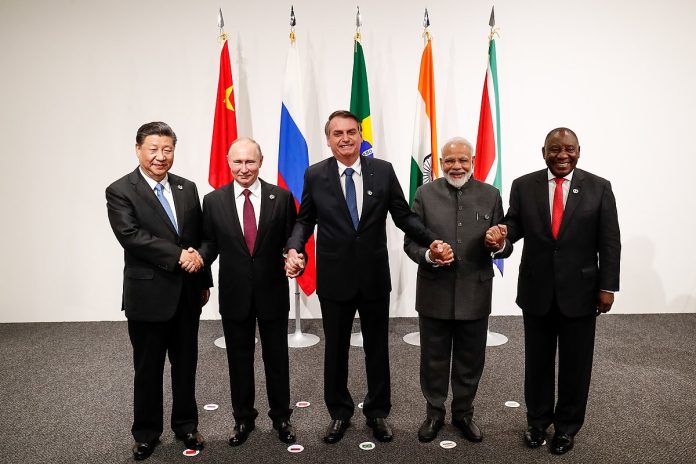According to a Russian expert, the addition of African Muslim countries to the BRICS could transform the group into a global leader of the South. The entry of countries like Algeria, Egypt, and Ethiopia could significantly expand the BRICS’ share of the global market and alter their global status and agenda. Ivan Lochkarev, a Russian academic and expert in African and Middle Eastern studies, believes that the inclusion of economically developed African countries like Egypt and Nigeria could broaden the BRICS’ market reach. Moreover, the addition of Muslim states to the BRICS would indicate the group’s transition towards becoming a leader of the entire South, according to Lochkarev.
The current BRICS group, comprising Brazil, Russia, India, China, and South Africa, is seen as a powerful institution, but it does not represent the diversity of countries in the global South. Lochkarev believes that integrating an African country with a significant Muslim population would demonstrate that the BRICS are becoming a more representative institution in terms of the diversity that exists in the South and the world. He also notes that some African candidates are crucial in terms of diplomatic efforts or regional/sub-regional leadership.
The inclusion of African countries would broaden the BRICS’ agenda, with more attention to issues such as food security, climate policy, and education. Lochkarev emphasizes that development cannot solely focus on setting up new logistical and production chains or financial support for specific projects.
The expert notes that the BRICS format is currently the most neutral of all possible formats in the current international context, despite the rivalry between Russia and the West and China and the United States. Therefore, it is essential to maintain the status quo within the BRICS and not invite controversial and uncompromising candidates.
Regarding the idea of a common currency for the BRICS, Lochkarev believes it is premature to discuss it. However, he sees the prospect of an increase in bilateral settlements in national currencies, such as the yuan, rupee, and Ruble, among friendly states and BRICS partners. This move could contribute to reducing the importance of the US dollar and the euro as global reserve currencies.
The potential expansion of the BRICS will be discussed at the upcoming summit in South Africa in August, where the group may also express its common position on the reform of the UN, particularly in terms of expanding African representation in the UN, starting with the UN Security Council.
By: V. A. Albia
CEO/Editor
Champions group
Email: [email protected]
Tel:(+7 911 634-59-04)
Share your story or advertise with us: Whatsapp: +2347068606071 Email: info@newspotng.com










